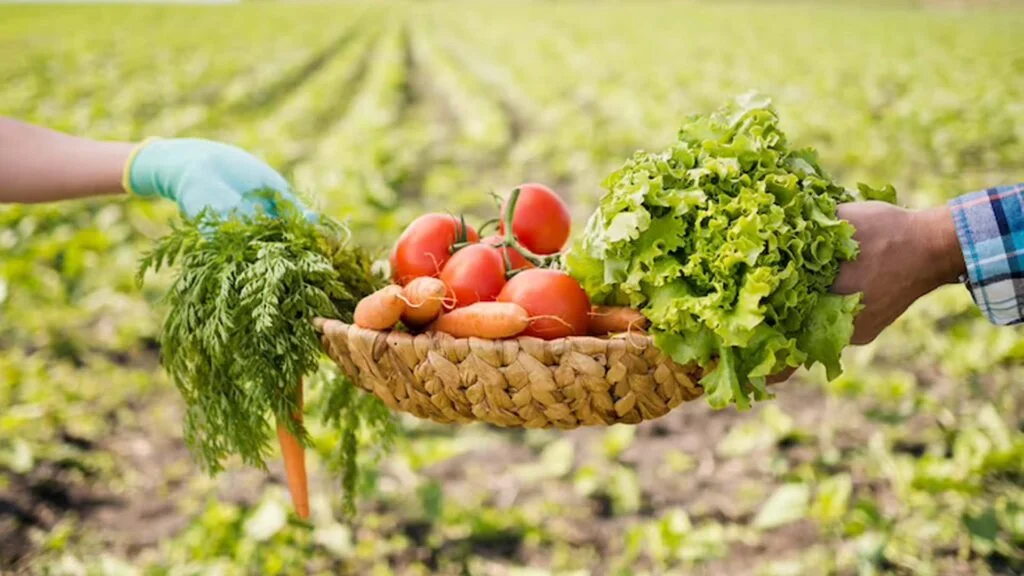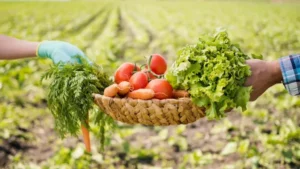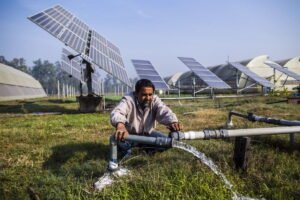Introduction
Sustainable agriculture has become increasingly vital in addressing the challenges of global food security. As the global population continues to rise and climate change intensifies, the need for agricultural practices that can both enhance food production and protect the environment is more urgent than ever. Sustainable agriculture focuses on maintaining soil health, conserving water, enhancing biodiversity, and reducing reliance on harmful chemicals—all of which are essential for long-term food production. This article explores how sustainable agriculture plays a crucial role in improving food security by enhancing resilience, ensuring stable food supplies, and promoting sustainable practices that support future generations.
What is Sustainable Agriculture?
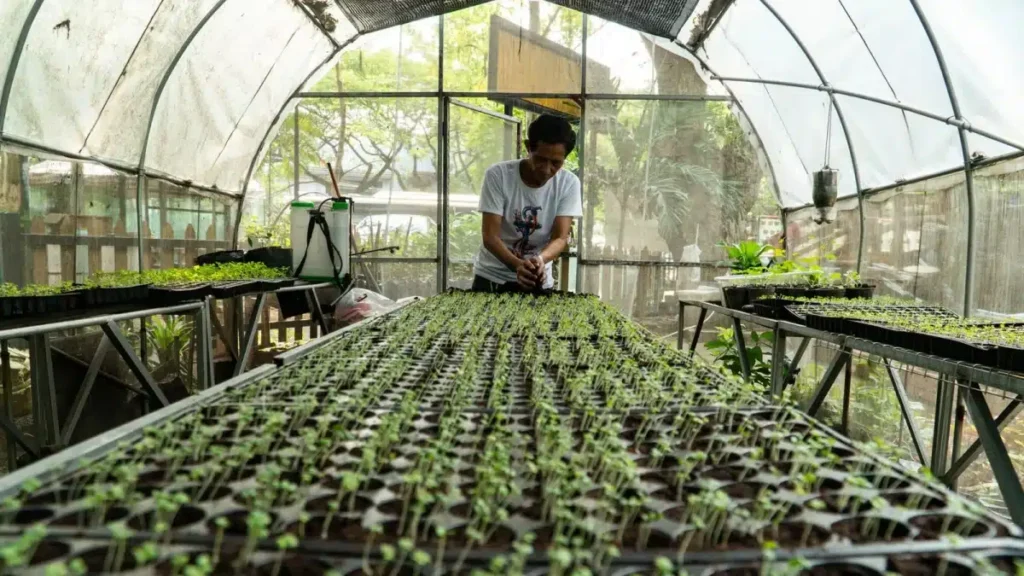
Sustainable agriculture refers to farming practices that meet current food needs without compromising the ability of future generations to meet theirs. It focuses on ecological balance, economic viability, and social equity, aiming to produce food in ways that preserve natural resources and protect ecosystems.
- Key Principles:
- Resource Efficiency: Using water, soil, and energy efficiently.
- Biodiversity Conservation: Supporting diverse ecosystems for improved resilience.
- Soil Health: Ensuring soil fertility and preventing degradation.
- Economic Viability: Supporting farmers’ livelihoods while meeting food demands.
- Resource Efficiency: Using water, soil, and energy efficiently.
Enhancing Crop Yields with Sustainable Practices
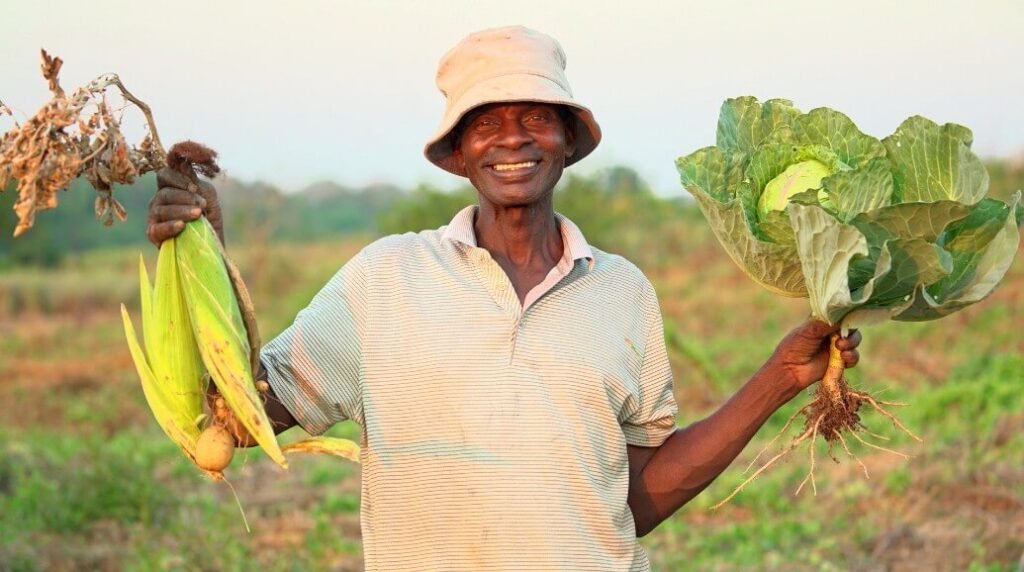
Sustainable farming methods, such as crop rotation, agroforestry, and organic farming, improve soil health and fertility, leading to higher and more consistent crop yields. These practices can help farmers produce more food with fewer external inputs, which is crucial for feeding growing populations.
- Crop Rotation: By alternating crops, farmers can maintain soil fertility, break pest cycles, and reduce the need for synthetic fertilizers.
- Agroforestry: Integrating trees with crops helps increase yields by providing shade, improving soil health, and conserving water.
- Organic Farming: Uses natural fertilizers and pest management techniques that can improve soil quality, leading to increased food production over time.
Resilience Against Climate Change
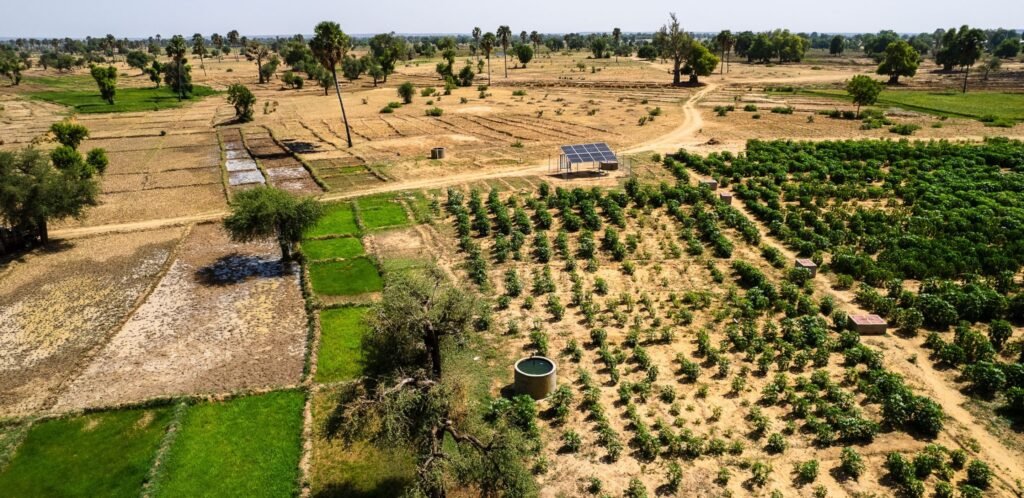
Climate change poses significant threats to global food security, with unpredictable weather patterns, extreme temperatures, and water scarcity affecting crop production. Sustainable agriculture practices help build resilience against climate variability by improving soil structure, conserving water, and promoting biodiversity.
- Drought-Resilient Crops: Sustainable farming encourages the use of drought-resistant crops and water-efficient irrigation systems, helping farmers cope with water shortages.
- Soil Conservation: Practices like no-till farming, mulching, and cover cropping improve soil structure, increase moisture retention, and reduce the risk of erosion.
- Biodiversity: Maintaining diverse ecosystems on farms helps mitigate the impacts of pests, diseases, and extreme weather events.
Long-Term Food Availability
Sustainable agriculture focuses on long-term productivity by safeguarding the environment and reducing dependency on non-renewable resources. By maintaining healthy soils and water systems, these practices ensure the continued availability of food resources for future generations.
- Soil Health: Healthy soils are critical for growing crops. Sustainable practices such as composting, crop rotation, and reduced tillage improve soil structure, leading to better long-term yields.
- Water Conservation: Sustainable farming methods, such as drip irrigation and rainwater harvesting, help conserve water resources, ensuring water availability for crops in the future.
- Nutrient Recycling: Practices like agroecology and organic farming focus on recycling nutrients within the farm system, reducing the need for external inputs like synthetic fertilizers.
Supporting Small-Scale Farmers
Sustainable agriculture can be particularly beneficial for small-scale farmers, who play a key role in food production in many parts of the world. By promoting local food production and reducing dependency on costly inputs, sustainable farming practices improve the economic viability of small farms and contribute to food security in rural areas.
- Local Food Systems: By focusing on local, diversified farming systems, sustainable agriculture supports food security by reducing dependence on global supply chains.
- Empowerment: Small-scale farmers benefit from practices that reduce costs, increase productivity, and promote economic independence.
Reducing Hunger and Poverty
Sustainable agriculture contributes to food security by increasing food production, which helps alleviate hunger and poverty. By improving yields, creating new income opportunities, and promoting food self-sufficiency, sustainable practices enable communities to better meet their nutritional needs.
- Increased Income: By adopting more efficient farming methods, farmers can increase their income and reinvest in their farms, contributing to local economies.
- Access to Nutritious Food: Sustainable farming promotes the production of diverse, nutritious crops that improve diets and combat malnutrition.
Reducing Environmental Impact
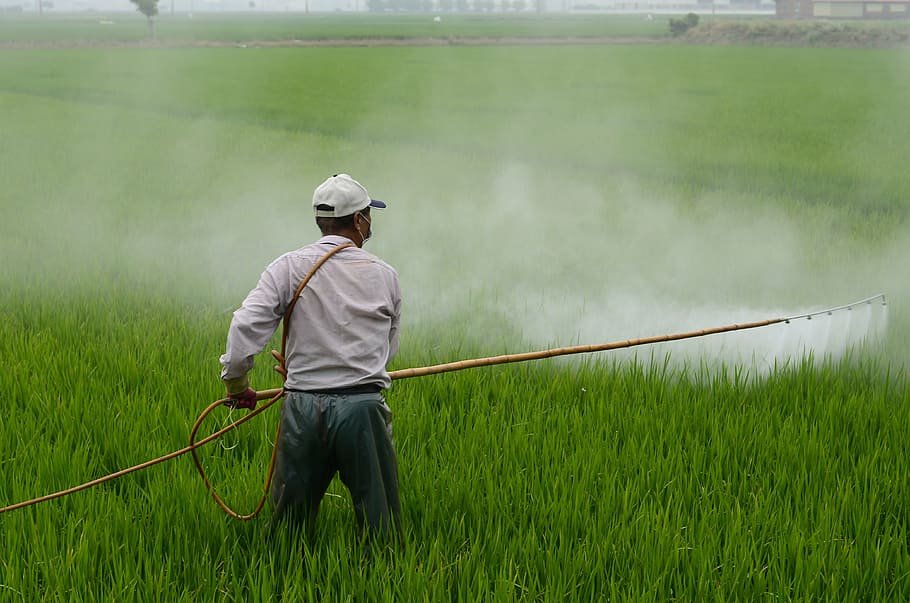
Sustainable agriculture helps to mitigate the environmental impacts of conventional farming methods, such as pollution, soil erosion, and water contamination. By reducing the use of synthetic chemicals and promoting natural farming systems, sustainable agriculture ensures that ecosystems remain healthy and capable of supporting food production in the long term.
- Reduced Chemical Use: Sustainable farming minimizes the use of synthetic pesticides and fertilizers, reducing pollution and promoting healthier ecosystems.
- Soil and Water Conservation: Practices like mulching, cover cropping, and reduced tillage prevent soil erosion and protect water quality.
Conclusion
Sustainable agriculture plays a crucial role in addressing global food security challenges. By enhancing crop yields, promoting resilience against climate change, ensuring long-term food availability, and supporting small-scale farmers, sustainable farming practices contribute to a more secure and stable food system. As we face growing environmental and social challenges, it is essential that we embrace sustainable agricultural practices that support both people and the planet.
The future of food security lies in farming systems that work in harmony with nature, promoting ecological balance, economic stability, and social equity. Through sustainable agriculture, we can ensure a healthy, food-secure future for all.
Q&A Section
Q: How does sustainable agriculture improve food security? A: It enhances crop yields, conserves resources like water, and builds resilience to climate change, ensuring stable food supplies for future generations.
Q: What are the key benefits of sustainable farming for small-scale farmers? A: Sustainable farming practices reduce costs, improve productivity, increase income, and help small-scale farmers build resilience against environmental challenges.
Q: How does sustainable agriculture help with climate change adaptation? A: By improving soil health, conserving water, and promoting biodiversity, sustainable farming systems are more resilient to climate variations and extreme weather events.
Resources
- Food and Agriculture Organization (FAO)
- International Fund for Agricultural Development (IFAD)
- Sustainable Agriculture Initiative (SAI) Platform
- United Nations Environment Programme (UNEP)
- The World Bank on Agricultural Sustainability and Food Security


